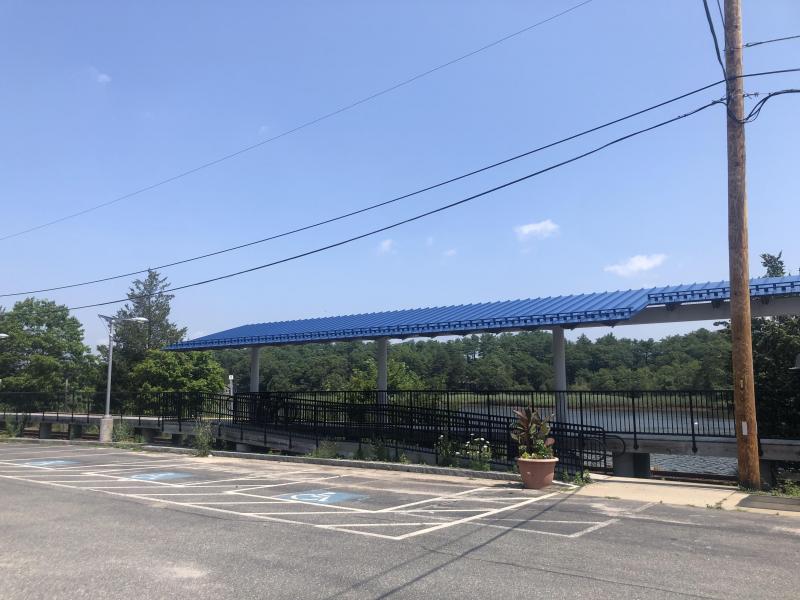Zoning for multifamily housing required, lest towns lose state funding
Wareham must have enough zoning to fit about 1,300 housing units within a half-mile radius of its train stop or it could lose infrastructure funding from the state in future years.
A new state law aimed to address the housing crisis now dictates that communities around MBTA stations must adopt a multifamily housing district within a half mile of their public transit station. The zoning must allow at least 750 units, though the exact number required for each town depends on the community’s population.
For Wareham, that means the zoning must fit 1,297 multifamily units within a half-mile radius of its CapeFLYER station on Merchants Way.
The law, signed last year, doesn’t require construction of new units. The new law requires multi-family “as of right” zoning, which would create a district where multi-family housing wouldn’t require a variance or special permit to be built.
Director of Planning & Community Development Ken Buckland said during Tuesday night’s Select Board meeting that the town likely already meets the zoning requirement through its commercial general zoning district.
“I think we can show that we meet the capacity,” he said.
Select Board member Alan Slavin said many MBTA-designated communities are already submitting complaints to the state, and he foresees more negative comments from affected communities in the future.
“It’s not feasible,” Slavin said, adding that the sewer and water capacity of the town doesn’t match what would be needed if an additional 1,300 units were built. “It’s not possible.”
Slavin’s sentiments were shared with other members of the Select Board, who also voiced their distaste for the law.
The board voted to authorize chair Judith Whiteside to submit a “hostile” letter to the state before the program’s public comment period ends later this week.
Communities can still require a site plan review, but the idea is to reduce hurdles for new multi-family housing projects, especially in areas that have exclusively allowed single-family housing.
Wareham doesn’t have a commuter rail station, but as a “MBTA adjacent” community, it will need to rezone part of town land for multi-family housing or face losing state funding. That adjacent status is due to the commuter rail station in Middleborough.
Slavin said though Wareham is now MBTA adjacent, a future Commuter Rail line extension into town could change that and further heighten zoning requirements.
The law mandates that communities not in compliance with new zoning requirements will become ineligible for some state funds, including from the MassWorks infrastructure program, the Local Capital Projects Fund and the Housing Choice Initiative.
Wareham’s proximity to a community with an MBTA station in Middleborough means it must fall in compliance with the new state law or risk losing future additional infrastructure funding for things like its sewers, Slavin said. MassWorks funding would also help future projects like a boardwalk along Merchants Way.













